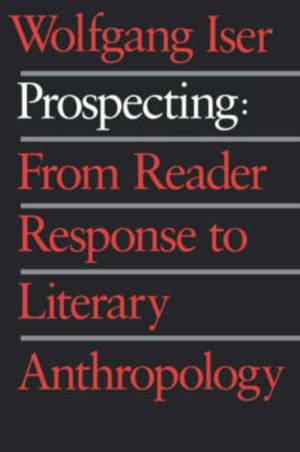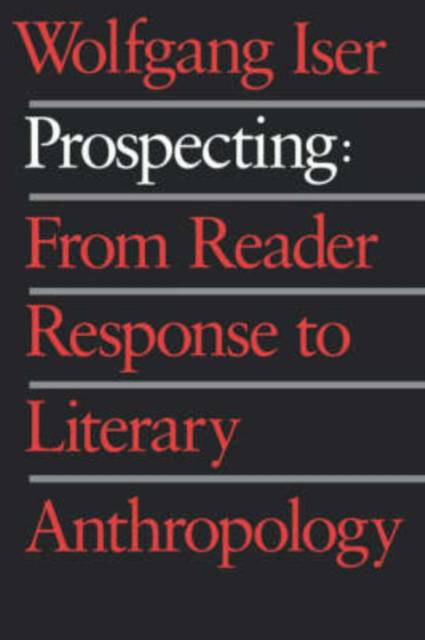
- Retrait gratuit dans votre magasin Club
- 7.000.000 titres dans notre catalogue
- Payer en toute sécurité
- Toujours un magasin près de chez vous
- Retrait gratuit dans votre magasin Club
- 7.000.000 titres dans notre catalogue
- Payer en toute sécurité
- Toujours un magasin près de chez vous
Description
Why do we need literature, and what does this need tell us about human nature? Wolfgang Iser shows how these questions grew out of his pioneering work in reader-response criticism and how the answers to them may lie in the new field of literary anthropology. Iser's recent work spans a wide range of viewpoints and subject matter, from sixteenth- to twentieth-century literature, from Spenser and Shakespeare to Joyce and Beckett. In thirteen chapters that chart his intellectual development over the past decade, Iser sets forth what reader-response theory has accomplished--and where it has fallen short. Reevaluating such time-honored concepts as representation, he sketches out a new "play theory" of the text that sees literature as an ongoing enactment of human possibilities.
Spécifications
Parties prenantes
- Auteur(s) :
- Editeur:
Contenu
- Nombre de pages :
- 328
- Langue:
- Anglais
Caractéristiques
- EAN:
- 9780801845932
- Date de parution :
- 01-02-93
- Format:
- Livre broché
- Format numérique:
- Trade paperback (VS)
- Dimensions :
- 156 mm x 230 mm
- Poids :
- 444 g







